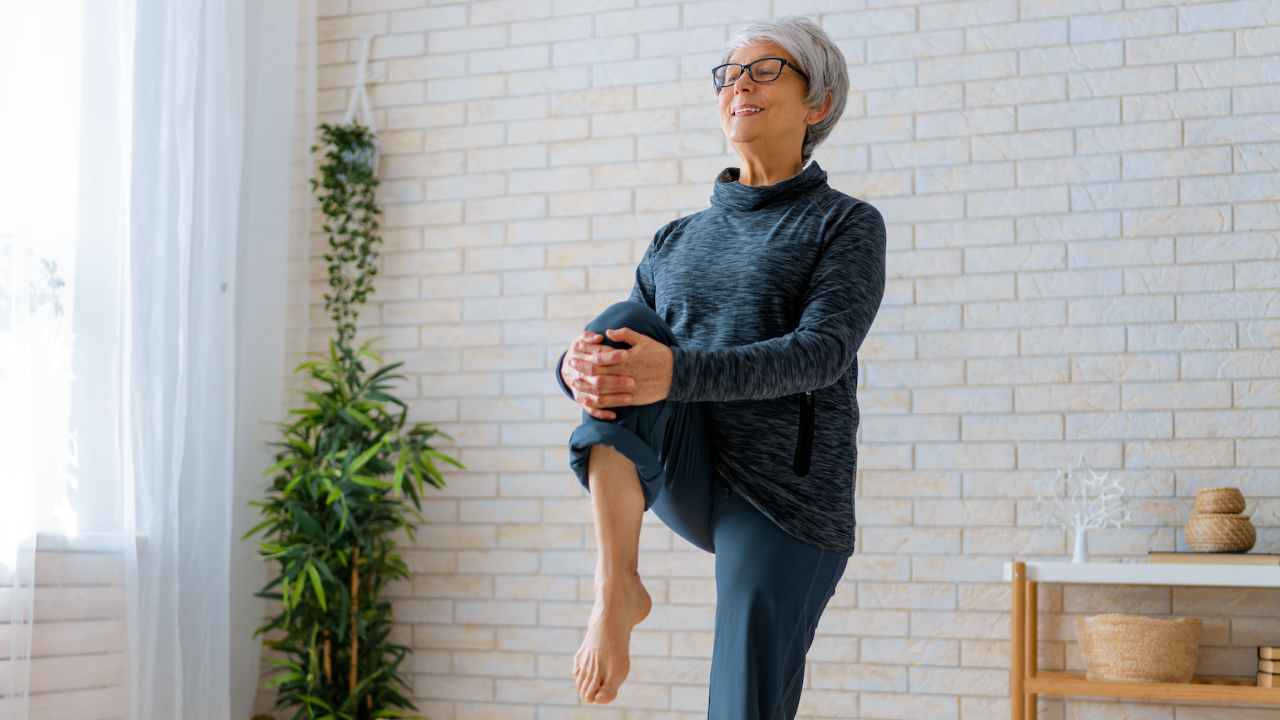
Yesterday, I taught a Cardio, Brain Games, and Balance Class. Towards the end of the class, we had a fascinating discussion about our inconsistency with balancing. Somedays, our balance feels solid and stable; other times, we are in a world of wobbles.
The first thing I emphasized is that this is NORMAL. If you google balance issues, it will list ten different medical issues you may have. The fact is, our balance will change from day to day, moment to moment.
However, a few variables may help you further understand how to improve your balance:
- Fatigue. Your quality of sleep, amount of sleep, current energy level, etc., all significantly affect your ability to focus. If you lack focus, falling becomes much more likely.
- Muscular Strength. If you've ever taken a class with me, you've heard me say, "Bring your belly toward your spine!" This cue helps you to engage your abdominal wall (core.) We also need quadriceps and calf strength. Remember, as we age, we naturally lose muscle tone unless we actively work to maintain or strengthen it regularly.
- Pain. Any active pain will impact your ability to balance. This isn't to say you can't practice balancing while you're in pain, but it's essential to listen to how your body feels and give yourself grace, both mentally and physically.
- The Neck. Harvard Health explains that "minuscule grains of calcium carbonate move to apply pressure on the hairlike structures [in the inner ear] whenever the head tilts, alerting the brain to the body's movement through space." Upon further investigation, this can be impacted by the strength of your neck. The inability of the neck to hold the head in a stable position creates what the body recognizes as a tilt (even if you're not consciously aware of it), throwing off your balance. A physical therapy study in 2016 concluded that "the stability of the trunk and neck are clearly important for maintaining balance and posture."
- The Feet. Over time, small nerve fibers in our feet become less sensitive, impacting our ability to balance. Practicing helps maintain these sensations and nerve connections.
- Eyesight. Have you ever tried balancing with your eyes closed? It's much more challenging. Likewise, even if you're balancing with your eyes open, poor eyesight will affect your body's ability to judge depth and distance, creating perceived instability.
- Medication. Many medications say "may cause dizziness," which is a clear indicator that your prescription may be affecting your balance.
While inconsistencies in your balance are normal, very real and severe medical conditions are symptomatically expressed through poor balance. The list above are just a few insights into what may be affecting your balance, but should not be replaced for medical advice by your primary healthcare professional.
If you're looking to improve your balance, join us on Thursday evenings on ZOOM from 6-7 PM EST for our Cardio, Brain Games, and Balance Class.
Email me with any follow-up questions: [email protected]
Hugs,
Christina DeFranco
Founder of Rooted Tree Wellness Studio
References:
Balance. Harvard Health. (n.d.). https://www.health.harvard.edu/topics/balance
8 factors that affect your balance (fall prevention). Gordon Physical Spokane. (2021, June 21). https://physicaltherapyspokane.com/8-factors-that-affect-your-balance-fall-prevention/
Song, G., & Park, E.-C. (2016). Effects of neck and trunk stabilization exercise on balance in older adults. The Journal of Korean Physical Therapy, 28(4), 221–226. https://doi.org/10.18857/jkpt.2016.28.4.221



